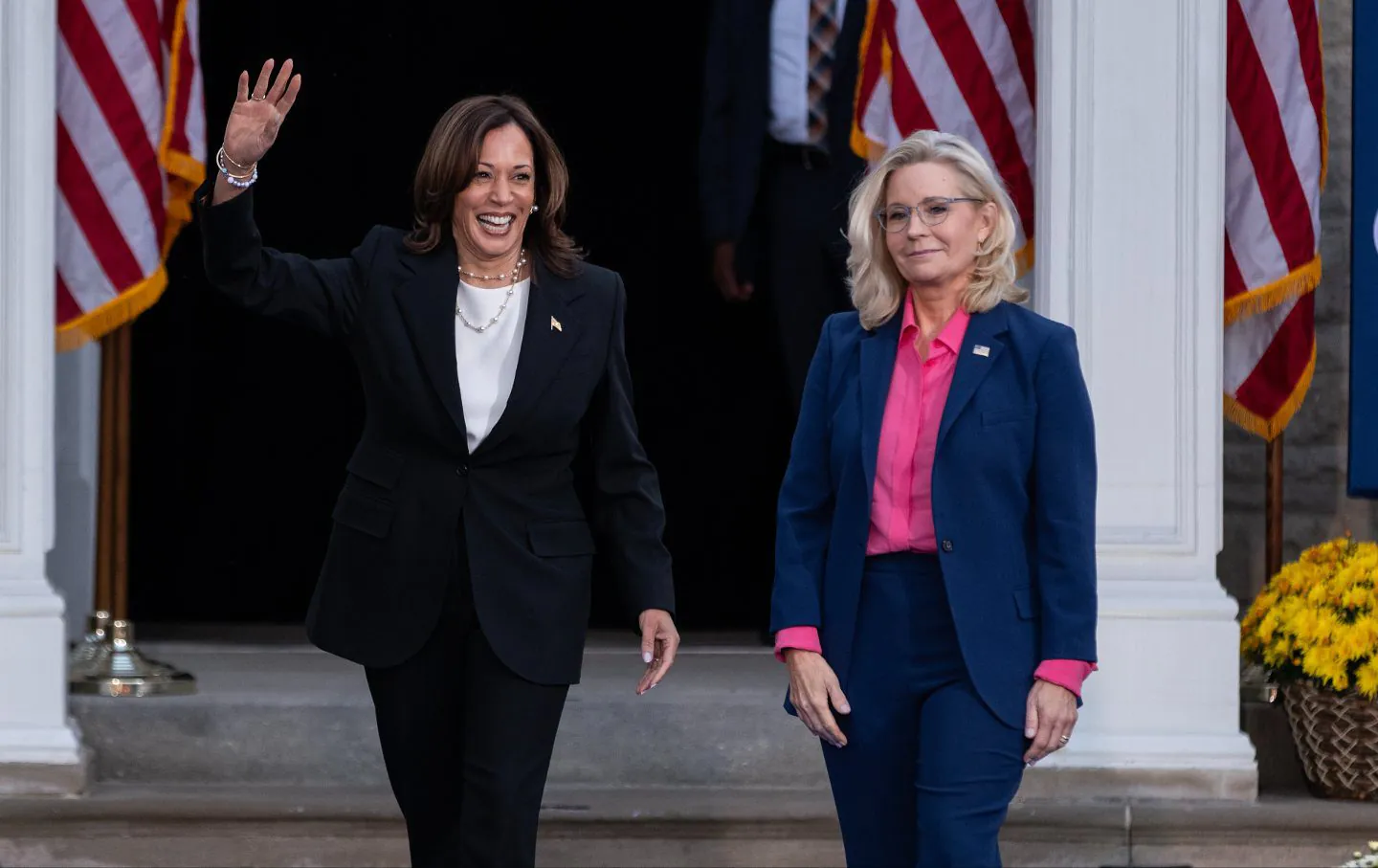[ad_1]
Policy
/
October 7, 2024
The Republican Party was not created as a vehicle for Trumpism or Cheneyism. It was a radical party that stood for economic, social and racial justice.
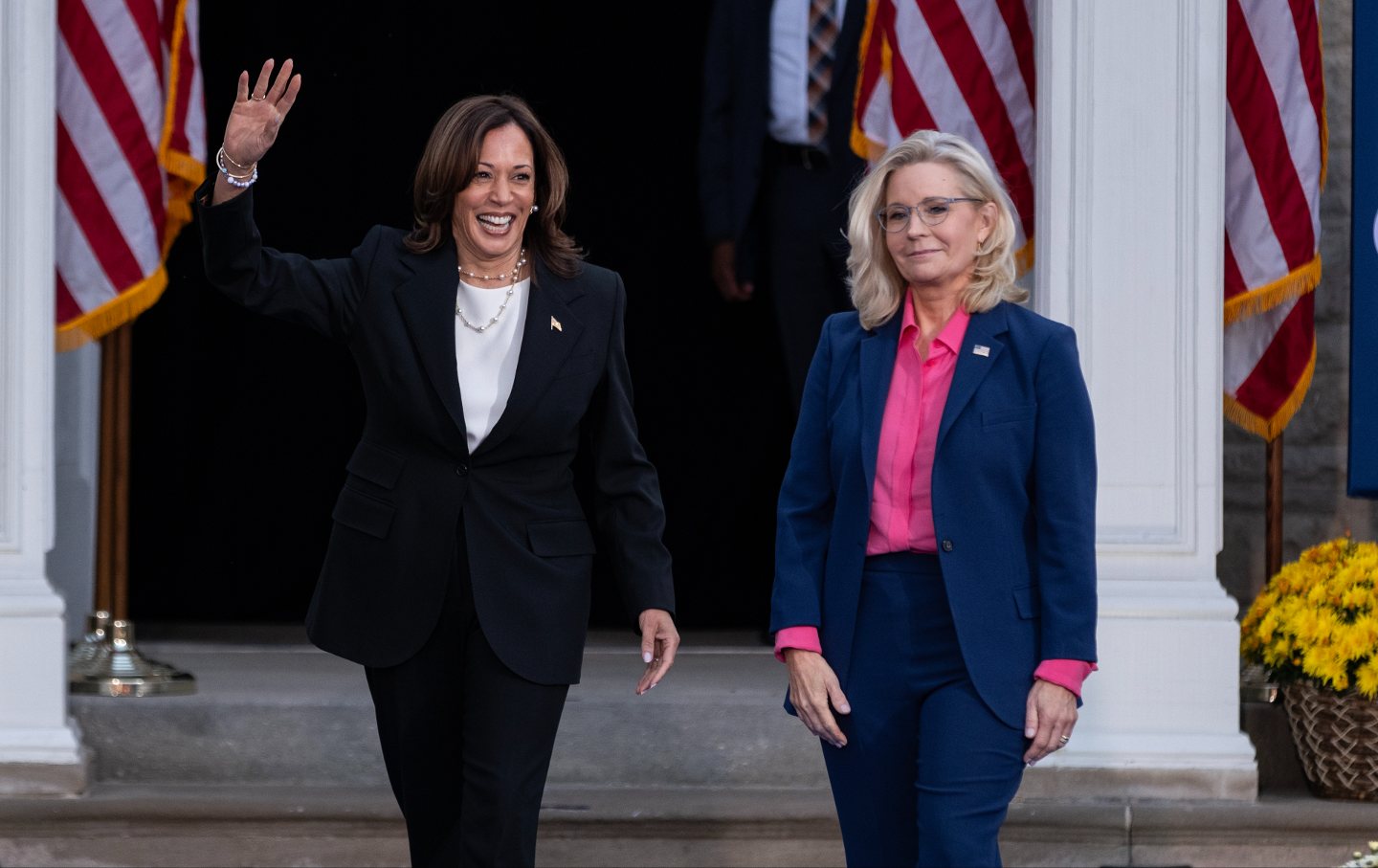
Kamala Harris walks with former U.S. Rep. Liz Cheney during a rally at Ripon College on October 3, 2024 in Ripon, Wisconsin.
(Jim Vondruska/Getty Images)
The big mistake most of the media made with their coverage last week Kamala Harris and Liz Cheney visit came to the birthplace of the Republican Party in Wisconsin in the form of a suggestion that Cheney, one of the most prominent names in contemporary Republican politics, would provide Harris, the Democratic presidential nominee, with a connection to historic roots. values of the Grand Old Party.
In fact, it was the other way around.
Cheney, a former Republican congressional leader, has previously taken far-right positions on war and peace, corporate power, workers’ rights, immigration and a host of other issues that would have embarrassed the people who founded the union. Republican Party. She is also the daughter of former Republican Vice President Dick Cheney, who dragged the party into the camp of neoconservatives and made his name synonymous with tax cuts for the wealthy and subordination to corporations.
Harris — the daughter of immigrants — is working on proposals to strengthen the federal government’s ability to fight divestment, tax the wealthy, improve conditions for the working class, and advance economic, social and social causes. racial justice—who would be far more likely to inspire the people who launched the Republican Party in the Ripon school building at the University of Eastern Wisconsin.
While he may not be as left-wing as the Ripon Republicans of 1854, Harris has views that are reasonably consistent with the first candidate elected to the presidency. Republican Abraham Lincoln denounced the “horrible injustice of slavery” at a time when most Southerners and many Northerners accepted the original sin of the American experiment; supported comprehensive land reforms; sided with immigrant workers; and fought for the working class. “Labor precedes and is independent of capital,” Lincoln declared in his first annual address to the nation in 1861. “Capital is only the fruit of labor, and could never have existed if labor had not first existed. Labor is superior to capital and deserves much more attention.”
That line is often quoted by labor unions, which are now among Harris’s staunchest supporters — and which have opposed the anti-union policies of the Cheneys and their corporate allies for decades. But politics makes strange alliances. That’s how Cheney, the former Republican congressional leader who split with his party’s chairman in 2021 after he tried to sway the 2020 presidential election, has become Harris’s top Republican backer.
Current number

Harris and Cheney came to Ripon with the goal of encouraging more Republicans to join the former Wyoming representative in supporting the Democratic nominee’s presidential bid. It’s a politically significant effort at a time when Harris is competing in the presidential race with former President Donald Trump, the authoritarian extremist who spent the best part of a decade turning government into a personality cult.
Despite the former president’s increasingly tight grip on the party machine, millions of party members reject Cheney’s opinion on Thursday. as Trump’s “perverted cruelty.” Former U.N. Ambassador Nikki Haley won 4.3 million votes in her primary challenge to Trump — garnering significant support in Wisconsin, Michigan, Arizona and other close-knit battleground states. Although Haley is now a Trump supporter, her supporters have organized a well-funded Haley Voters for Harris campaign that is actively trying to sway disaffected Republicans to Harris.
Cheney appeared with Harris at a packed rally where banners proclaimed, “County above party,” and where the former Wyoming representative told wavering Republicans, “This election is not about putting patriotism before partisanship. This is our duty.”
Trump’s response to this threat was to brand Harris as:a radical leftist.” Like most contemporary Republicans — along with many Democrats and members of the media — Trump imagines that the Republican Party has always been conservative. But this is a political mistake.
Trump fails to recognize that the label “radical left” better describes the politics of the founders of the Republican Party than the label “conservative” that Ronald Reagan, Dick Cheney, Liz Cheney and their ilk have so successfully affixed to the party. the time when it was a fiefdom.
The first Republicans were true radicals—people who wanted to upend the country’s politics at a time when existing parties were capitulating to the demands of Southern slaveholders and their political patrons.
If you visit at the Little White Schoolhouse in Riponwhich reads “Birthplace of the Republican Party,” tells the story of Alvan Earle Bovay “calling a meeting of 53 voters . . . to form a new party.” According to historical records, the meeting was organized to “protest the Senate’s passage of the Kansas-Nebraska Act, which permitted the extension of slavery beyond the limits of the Missouri Compromise. The demonstration resulted in the formation of a new, albeit local, party drawn from the ranks of disgruntled Whigs, Freelanders, and Democrats.”
Popular
“Swipe to the bottom left to see more authors”Slide your finger →
Among the applicants were more than Jacob Woodruffwho moved to the Ripon area as a member of the Wisconsin Phalanx. And Hiram S. Town, another member of the Phalanx. And Robert Mason, another member of the Phalanx. And William Dunham, founder of the Phalanx, who served as moderator at the first convention that spawned the Republican Party.
The Advisory Council on Historic Preservation, an independent federal agency that advises the President and Congress on national historic preservation policy, describes the Wisconsin Phalanx as follows. “an experimental socialist community” It was founded by the followers of Charles Fourier, the French philosopher who was one of the founders of utopian socialism. Fourier’s ideas were popularized in the United States by Horace Greeley New York Tribunewhich for years employed Karl Marx as its European correspondent.
Bovay, Greeley’s friend and colleague, had moved to Ripon a few years before the 1854 meeting was convened. A veteran organizer who has led militant movements for land reform — with the slogan “Vote for yourself a farm” — Bovay has long advocated the formation of an independent political movement with the goal of gaining control of the legislature and Congress to enact it. radical reforms.
At Bovay’s urging, Greeley promoted the new party, which united partisans from many political camps in a common opposition to the spread of slavery. Republicans were among the first many allies and collaborators in socialist causesincluding Joseph Weydemeyer, a former Prussian army officer who continued to correspond with Marx as he rose through the ranks during the Civil War.
Decades after the founding of the new party, the great union and socialist party leader Eugene Victor Debs reflected on this story in his speeches. Although he dismissed both major parties as “wings of the same bird of prey” at the beginning of the 20th century, Debs allowed as how “The Republican Party was once red.”
There may have been some hyperbole in that comment. Ripon’s Republicans were not all socialists and did not agree on all ideological issues. Yet there is no question that they were united in the radical belief that a political party was needed that would honor the Declaration of Independence and its promise that all men are created equal, and that would defend the Constitution. The first national Republican Party platform invited “the affiliation and co-operation of men of all parties, however different they may be from us in other respects, in support of the principles herein declared; and we believe that the spirit of our institutions and the constitution of our country guarantee freedom of conscience and the equality of citizens…”
It is in this spirit that Kamala Harris, a reasonably progressive Democrat, calls on contemporary Republicans to support a presidential bid in the spirit of the original Republican Party; while Liz Cheney, the unapologetically conservative Republican, urges her fellow party members to ditch their partisanship and “Country Over Party.”
Can we count on you?
In the next election, the fate of our democracy and our basic civil rights will be on the ballot. The conservative architects of Project 2025 seek to institutionalize Donald Trump’s authoritarian vision at all levels of government should he win.
We have seen events that fill us with fear and cautious optimism—all the while, The Nation he was a bulwark against misinformation and an advocate for bold, principled viewpoints. Our dedicated writers interview Kamala Harris and Bernie Sanders, unpack JD Vance’s shallow right-wing populist appeals, and discuss the path to Democratic victory in November.
Stories like this and the one you have just read are vital at this critical juncture in our country’s history. Now more than ever, we need clear-eyed and in-depth independent journalism to make sense of the headlines and sort fact from fiction. Donate today and join our 160-year legacy of speaking truth to power and raising the voice of local advocates.
In 2024, which will likely be the defining election of our lifetimes, we need your support to keep delivering the insightful journalism you rely on.
Thanks,
The editors The Nation
More here The Nation
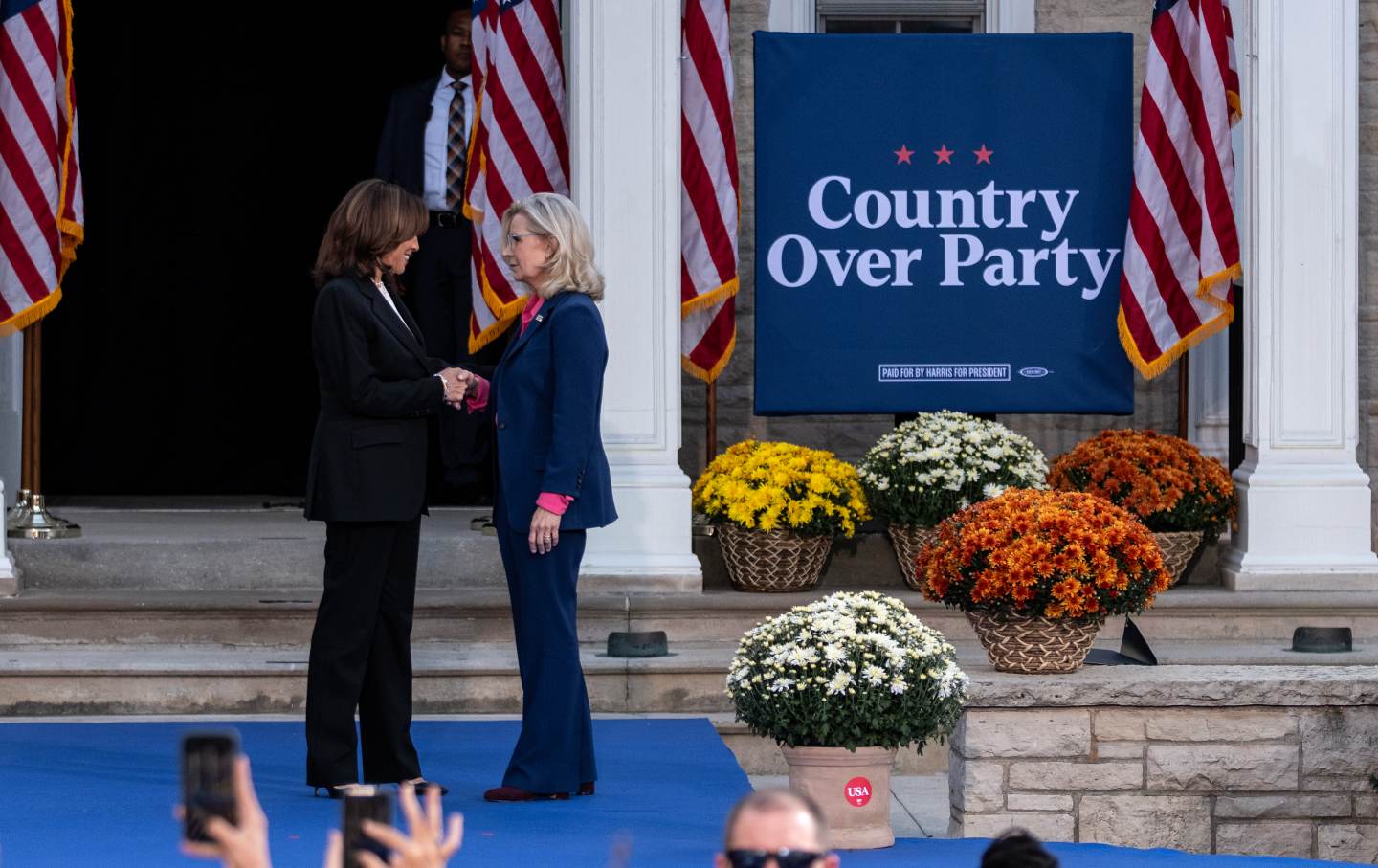
Kamala Harris is trying to appeal to centrist Republicans, but what if they don’t exist? And what if their search causes him to leave the Democratic base?
Dave Zirin
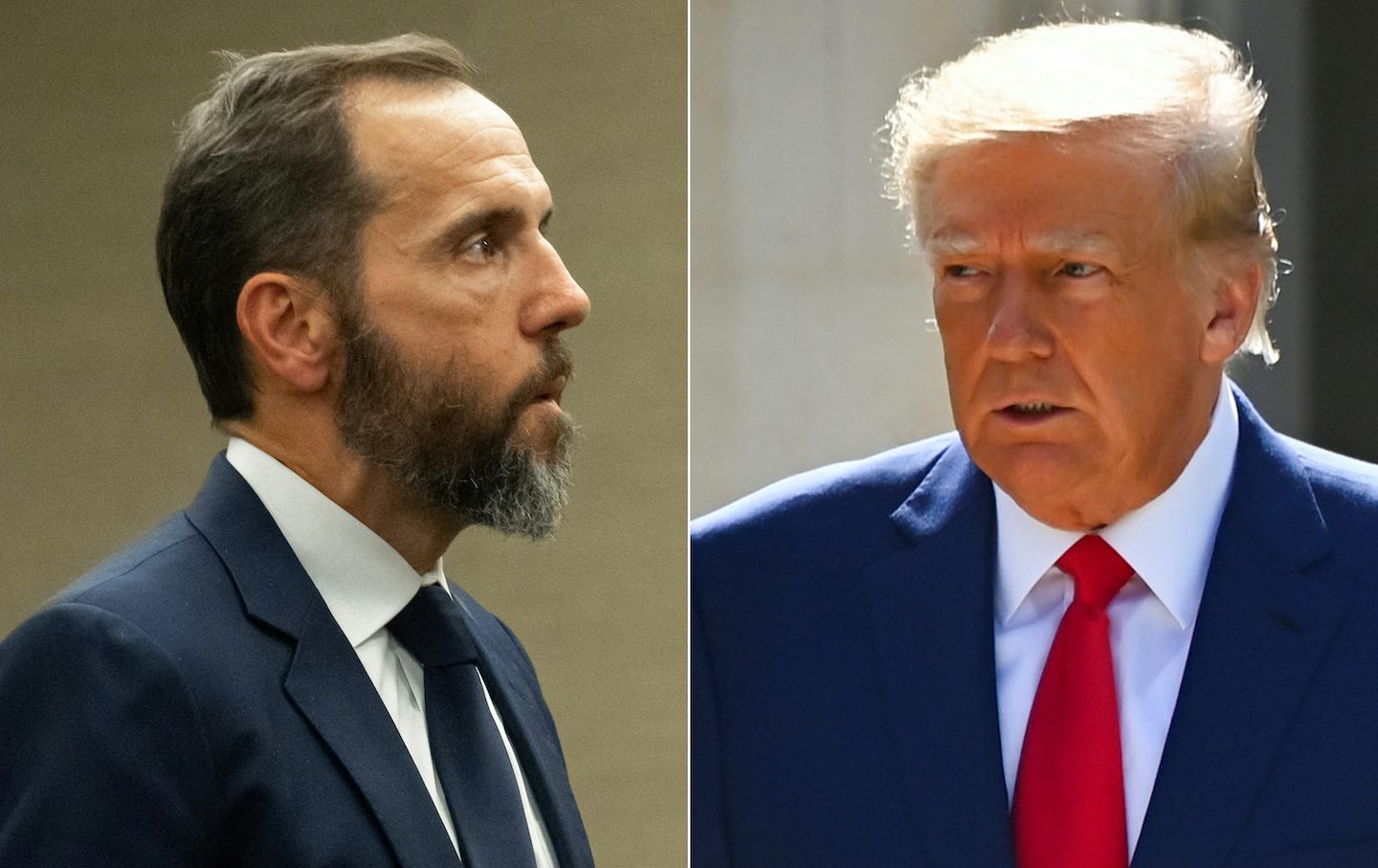
A new filing by special counsel Jack Smith claims that even in light of a Supreme Court ruling granting immunity to presidents, a person seeking the office will be held criminally liable…
Chris Lehmann

Trump’s base loves him not because the former president wants to fight crime, but because he wants retribution.
Sasha Abramsky
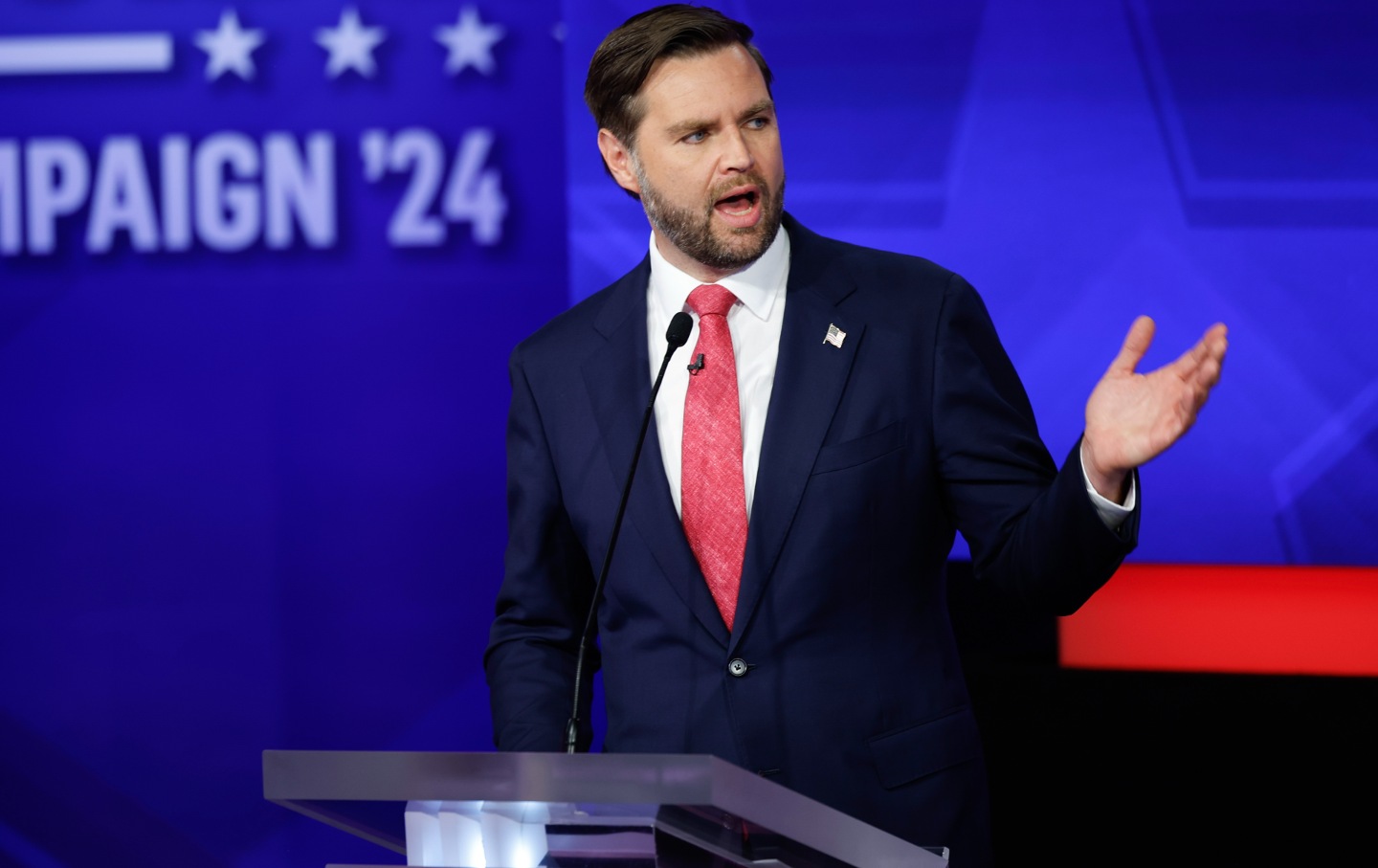
Mainstream journalists are overcomplicating something very simple: Republicans want a nationwide abortion ban.
Joan Walsh

